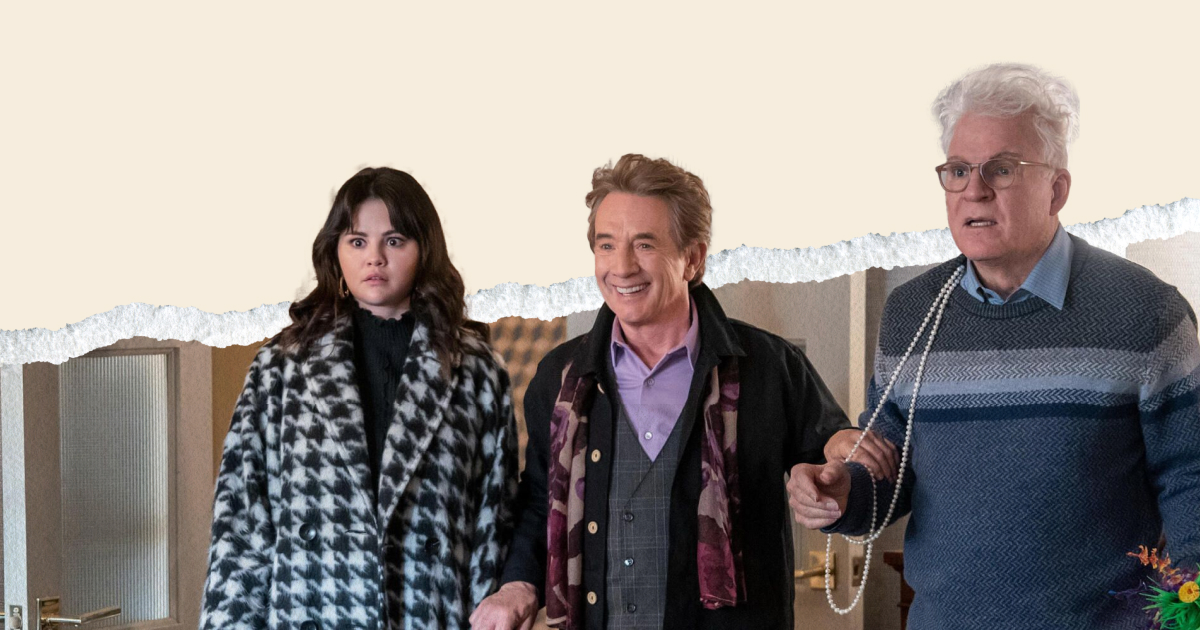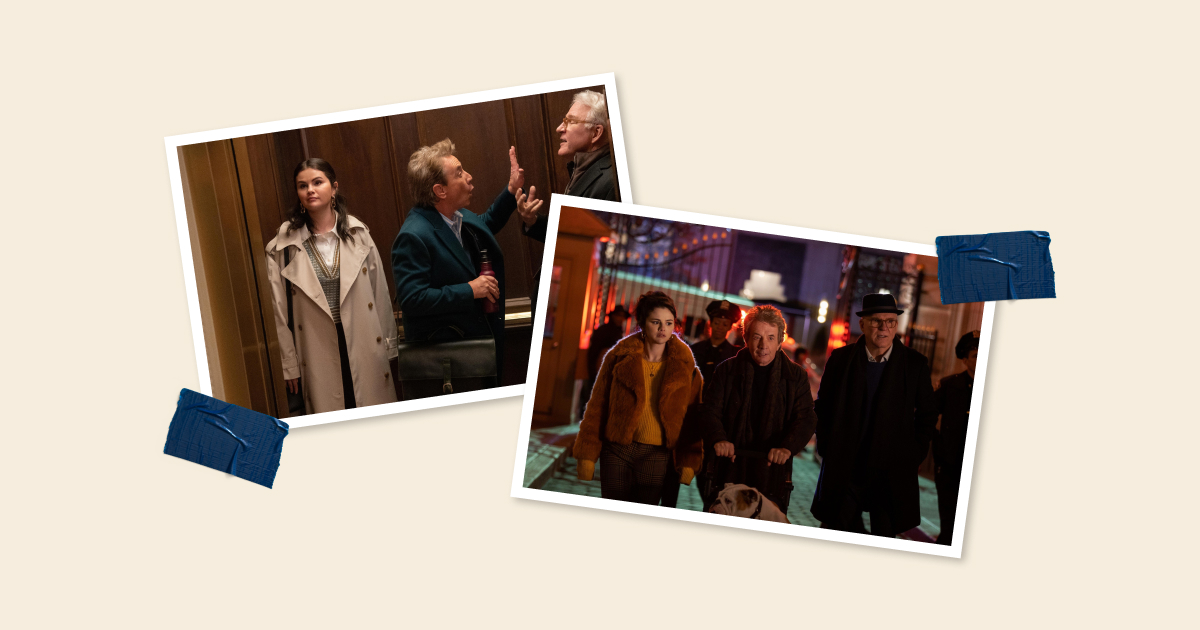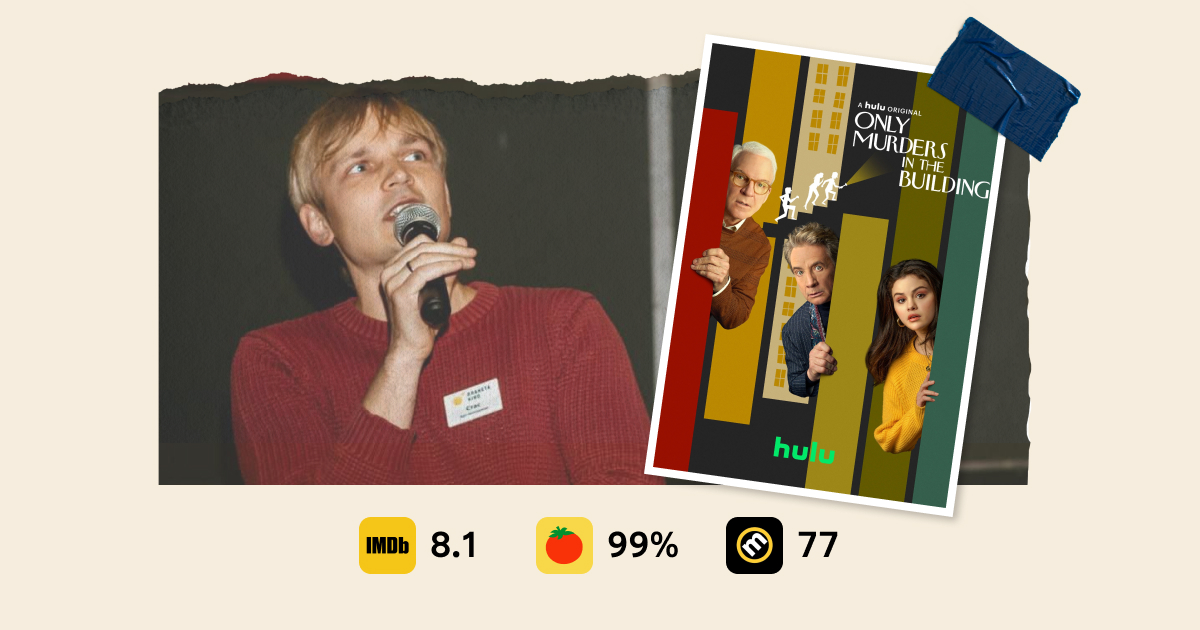The same murders in the same building: an analysis of the highest-rated comedy-detective series of the last three years
Stanislav Tarasenko

On August 31, 2021, the highly successful series Only Murders in the Building was launched on the Hulu streaming platform. For three years in a row (the second season was released in 2022, and the third season is currently underway), it has been among the top-rated shows on Hulu, with critics and viewers giving it mostly positive feedback, and big, big film and television stars - from the immortal Shirley MacLaine to the permanent Meryl Streep - considering it an honour to appear in the series in minor roles - in short, everything is just right.
However, behind the façade of the acclaimed streaming project lies a typical retelling of monotonous detective clichés in the Agatha Christie style, decorated with boring pretentious drama and New York hipster zoominess. Read more - and much angrier! - in the review.
Only Murders in the Building is the brainchild of famous comedian Steve Martin (Planes, Trains and Automobiles, The Pink Panther) and his colleague John Robert Hoffman (Northern Lights, Looking). Over the past 15 years, Steve Martin's name has gradually disappeared from the big screen, which has led many to write him off - but this is not surprising, as the actor's career peaked in the eighties and nineties. However, Only Murders in the Building was his grand return to the small — though hardly small! — screens.
However, in an interview last year, Steve Martin said that he had no intention of acting again after Murders and would retire from acting after the series. Well, as they say, we'll see.
The concept of the series is straightforward. Steve Martin himself, his old friend Martin Short (together they starred in two parts of the comedy Father of the Bride) and the youngest star of the team, pop star Selena Gomez (Spring Breakers, A Rainy Day in New York, The Walking Dead), will play leading roles, as well as being executive producers of Only Murders in the Building.
The characters are residents of a beautiful building on the Upper West Side of New York City. Steve Martin plays the part of a once-popular, now-forgotten television actor living out his retirement (essentially playing himself). In turn, Martin Short plays the role of a once-popular, now-forgotten theatre director who is also living out his retirement. Selena Gomez, the least interesting of all the main characters, is given the role of a long-suffering buzzer, who, in line with the tradition of modern Hollywood, has a harsh character and keen intellect.
All of them are lonely, on their own, and suffer from depression to one degree or another. Fate brings the trio together in a lift and turns them into friends, thanks to a mysterious murder in the characters' home. Being fans of crime podcasts, they decide to investigate the case themselves and record a podcast about it, which they call - all together! - Only Murders in the Building.
The most accurate epithets to describe Only Murders in the Building are 'cosy' and 'atmospheric'. Series of this type - from I Never... to Ted Lasso - are created as a therapeutic sedative. In such a series - mainstream, entertaining, background - the viewer takes a break, forgetting about annoying everyday problems and existential confusion in their heads (even if the characters of such shows are constantly suffering and depressed).
And this therapeutic quality of Murders is both the main advantage and disadvantage of the series. The advantage is that many viewers are looking for something like this and are happy to watch it (which, as you can imagine, ensures high ratings). The disadvantage is that the creators of Only Murders in the Building got too carried away with this "cosiness" and "atmosphere", paying less attention to the logic of the plot, psychological portraits of the characters and the quality of humour.

Murders turned out to be completely toothless and bland, both in terms of emotion and narrative. Yes, the genre of this series is comedy detective, but there are few hilarious jokes in it and even fewer detectives who would draw you in.
The absurdity of the plot of Only Murders in the Building reaches such a climax that, at some point, the series' events lose all meaning - and you no longer care where Selena Gomez ends up or how Martin Short achieves what he wants. At the same time, the "justifications" of critics who rightly claim that Murders is a series that only pretends to be a detective but is a tragicomedy of relationships, do not change anything much. Yes, Gomez, Short, and Martin are constantly making fun of each other, sharing individual traumas, and so on down the list, but it's all just treading water.

In general, eternal repetition is one of the most significant drawbacks of the series. Flashbacks, cliffhangers, and episodes filmed from the point of view of secondary characters - the methodology of Only Murders in the Building is evident as early as the fifth episode of the first season. But God be with the methodology! The script is what's worth complaining about! While Steve Martin and Martin Short's characters, without exaggeration, carry the entire series, at least by showing expression and clowning around, Selena Gomez walks around with a sour face from season to season. She hardly does anything in every sense of the word. In one episode, she "orders" herself to remember a moment that her mind has erased from her memory... and she remembers it safely!

You see, this is basically how everything in Only Murders in the Building is sorted out. If something is needed, it will undoubtedly happen. If the "killer" is caught in absolute darkness, the lights go on in the building the moment he is caught. It is clear that there is no real drama to speak of in such cases. In Murders, even death is treated as a joke — it is impossible to sympathise with the victims in the series because none of its characters are psychologically believable.
In short, Only Murders in the Building is a typical cultural product of the buzzer generation (albeit created by pensioners). What kind of "euphoria" is there? What kind of "idol" is this? It is a dull and monotonous one-day entertainment, completely unable to break out of the traditional commercial mainstream. There is no risk or imagination — the same murders in the same building.



